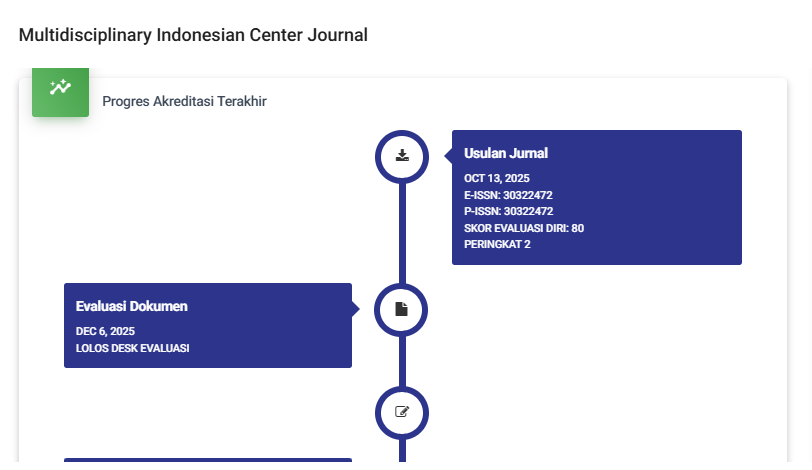INCREASING STUDENTS' LEARNING ENGLISH LANGUAGE THROUGH THE TASK-BASED LEARNING METHOD IN CLASS X AT SMA YPPGI SINAKMA WAMENA PAPUA PEGUNUNGAN
DOI:
https://doi.org/10.62567/micjo.v2i4.1441Keywords:
Task-Based Learning, English Language Learning, Student Achievement, Teaching MethodAbstract
Abstract
This research was conducted to evaluate the effectiveness of the Task-Based Learning (TBL) method in enhancing the English language learning outcomes of Great students at SMA YPPGI Sinakma, Wamena, Papua Pegunungan. The study employed a quantitative approach, utilising a pre-experimental design featuring a one-group pre-test and post-test model. A total of 30 students were selected as the sample through purposive sampling. Data collection instruments included pre-tests, post-tests, classroom observations, and student questionnaires. The findings indicated that the Task-Based Learning method significantly enhanced students’ English proficiency. The average pre-test score of 58.2 rose to 78.6 in the post-test, reflecting an overall mean improvement of 20.4 points. Statistical analysis via a sample t-test confirmed a significant difference between the pre-test and post-test results at the 0.05 significance level. Furthermore, observational and questionnaire data revealed that students exhibited increased motivation, confidence, and active engagement during the learning process. The results demonstrate that Task-Based Learning effectively promotes students’ English learning by fostering meaningful communication, collaboration, and practical language use. Consequently, it can be concluded that the TBL method is a suitable and effective teaching strategy for enhancing English proficiency among high school students, particularly in remote learning contexts such as SMA YPPGI Sinakma Wamena.
Downloads
References
Cunsolo Willox, A., Harper, S. L., & Edge, V. L. (2013). Storytelling in a digital age: Digital storytelling as an emerging narrative method for preserving and promoting indigenous oral wisdom. Qualitative Research, 13(2), 127–147. https://doi.org/10.1177/1468794112446105
Dörnyei, Z. (2001). Motivational Strategies in the Language Classroom.
Ellis, Rod. (2012). Language Teaching Research and Language Pedagogy. John Wiley & Sons Inc.
Iseke, J. (2013). Indigenous Storytelling as Research. International Review of Qualitative Research, 6(4), 559–577. https://doi.org/10.1525/irqr.2013.6.4.559
Kaleimamoowahinekapu Galla, C. (2010). Talking story with vital voices: Making knowledge with Indigenous language. Kirkness & Barnhardt.
Nunan, David. (2010). Task-Based Language Teaching. Cambridge University Press.
Oxford, R. (2006). Task-Based Language Teaching and Learning: An Overview. https://www.researchgate.net/publication/237259483
Sadik, A. (2008). Digital storytelling: A meaningful technology-integrated approach for engaged student learning. In Educational Technology Research and Development (Vol. 56, Issue 4, pp. 487–506). https://doi.org/10.1007/s11423-008-9091-8
Vygotsky, L. S., Cole, M., John-Steiner, V., Scribner, S., & Souberman, E. (978). Mind in Society The Development of Higher Psychological Processes.
Downloads
Published
How to Cite
Issue
Section
License
Copyright (c) 2025 Napius Kogoya, Adriana Sem, Napius Kogoya

This work is licensed under a Creative Commons Attribution-ShareAlike 4.0 International License.



























